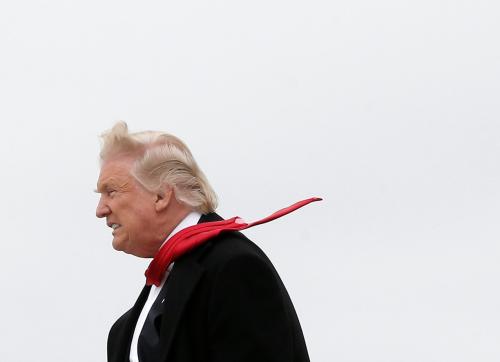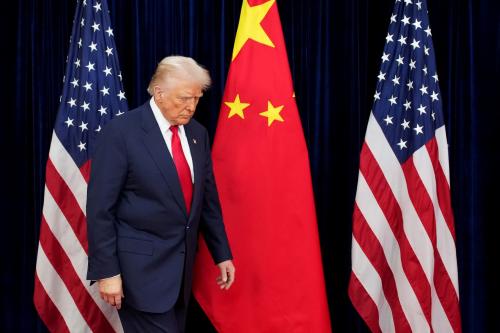

1:00 pm EST - 2:15 pm EST
Past Event
In the final days of Trump’s presidency, the withdrawal of troops from the Middle East has raised many important questions about the future of America’s “forever wars.” The incoming Biden administration will have to make difficult decisions about these engagements and be prepared to respond to uncertainty over intra-Afghan peace talks, long-term deployments in the Middle East, and overall American appetite for sustained military commitments abroad.
On November 24, Foreign Policy at Brookings hosted an event on the Biden presidency and the future of America’s “forever wars” in partnership with the Charles Koch Institute. Moderated by Senior Fellow Michael O’Hanlon, the panel explored some of the difficulties of U.S. involvement in war in the Middle East and addressed potential actions the Biden administration may take to reduce America’s commitments in the region.
Chris Preble, co-director of the New American Engagement Initiative at the Atlantic Council, said that America’s continuous wars began after the 9/11 terrorist attacks and have not ended since, emphasizing that “policies don’t change unless someone changes them.” This lack of political inertia has cost $5.5 trillion and thousands of Americans lives. When Biden takes office, he said, there is a real possibility for a generational shift in how America defines threats, and the U.S. will have to determine how to rebalance the instruments of power it needs to respond to these shifting threats.
David M. Rubenstein Fellow at Brookings Madiha Afzal agreed that staying in a “forever war” is not beneficial for the U.S. overall, but urged that framing these decisions as a binary choice is unhelpful. Specifically, she argued that the U.S. should “commit to maintaining a small troop presence in Afghanistan until an intra-Afghan peace deal between the Taliban and Kabul is achieved.” In doing so, she said, Kabul would gain leverage in negotiations with the Taliban and the U.S. would be able to control counterterrorism operations and the narrative of the war for regional allies such as Pakistan.
Director of Programs and Research Fellow at Center for the Study of Statesmanship for The Catholic University of America Justin Logan argued that, in their effort to situate the Middle East in a broader strategic context, “forever wars” have largely failed. The biggest U.S. priorities in the Middle East are oil, Israel, and terrorism, he said, and he contended that having 50,000 troops in the region isn’t necessary to further American security goals for any of these priorities. Competition and resource constraints may force the U.S. to analyze and commit to what is most important for its own future security.
Vanda Felbab-Brown, director of the Initiative on Nonstate Armed Actors, emphasized that the United States should not overly focus on sunk costs in Afghanistan or elsewhere. Instead, judgements should be made on the basis of marginal and opportunity costs, as well as realistic assessments of whether additional resources will, in fact, alter battlefield and diplomatic dynamics. However, Felbab-Brown also highlighted the dangers of unplanned or sudden withdrawals, pointing to a recent problematic Trump administration decision to withdraw U.S. special operations forces from Somalia. She also argued that combating terrorism abroad in open-ended wars actually fuels domestic terrorism, with U.S. right-wing armed groups seeking to draw recruits from U.S. military veterans. Weighing all these costs and causes of terrorism is crucial for U.S. national security and public safety, particularly as U.S. military deployments reduce resources for key U.S. national security and public safety priorities such as pandemic prevention.
The panelists agreed that the Biden administration has an important set of decisions to make regarding U.S. national security and the future of its military engagements in the region. The experience of the last 20 years will set the stage to decide which missions advance the cause of peace and which fail to protect American values abroad.
Panelist




Ryan Hass
January 19, 2026

Robert Kagan
January 18, 2026

Patricia M. Kim, Joyce Yang
January 16, 2026